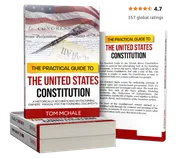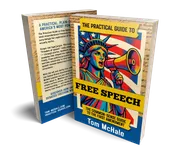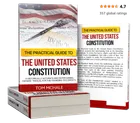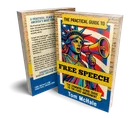About Practical Guides
Whether you want to understand the Constitution, explore American history, master the nuances of free speech, or just become the most interesting person at your next dinner party, there's a Practical Guide for you.

Fun, engaging guides that make history, civics, and fascinating topics accessible to everyone. No dry textbooks. No boring lectures. Just good stories and clear thinking.
Explore the Books
Celebrating America's 250th Anniversary
Ever nod along when someone mentions "free speech" or "unconstitutional" and think, "I really should learn more about that... someday"? I did too. So I stopped waiting for someday and wrote the books I wished existed — quick, engaging guides that make understanding America's foundations actually enjoyable.

The complete story of America's founding, its people, and the events that shaped the nation — told with the fascinating side stories that make history come alive.

Your "owner's manual" for the country. Understand how the Constitution works and why it matters in everyday life — no law degree required.

What does the First Amendment actually protect? Learn the real boundaries of free speech through the landmark cases that defined it.
Your Complete Shortcut to Understanding America
Get all three essential guides in one special bundle. From the founding stories and the people who shaped the nation, to the Constitution that runs it, to the bedrock principle of Free Speech — everything you need to truly understand America.
 America's Story
America's Story  America's Manual
America's Manual  America's Foundation
America's Foundation Homeschool co-ops, book clubs, civic groups, classrooms — get special pricing on bulk orders of any title.
Over 80 captivating stories that feed your curiosity

Why do tennis players grunt? Are bananas radioactive? What does space smell like? Did FedEx's founder really gamble corporate money in Vegas to save the company?
Feed your curiosity with surprising, quirky, and stimulating stories about the world we live in. Over 80 chapters covering people, history, science, food, sports, technology, nature, and much more.
Because life's too short to be the person who nods along and says "interesting" when you have nothing to add to the conversation.
Whether you want to understand the Constitution, explore American history, master the nuances of free speech, or just become the most interesting person at your next dinner party, there's a Practical Guide for you.